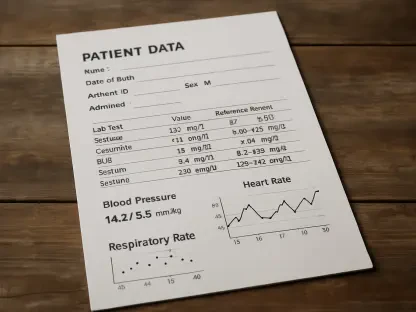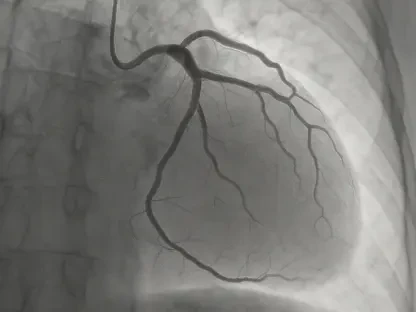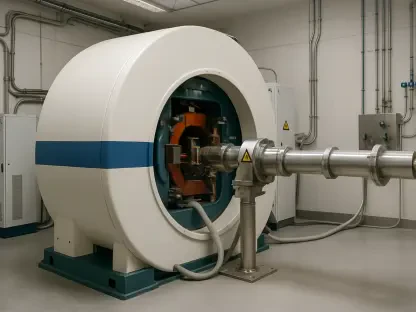Imagine a scenario where elderly individuals with chronic conditions no longer face the daunting challenge of managing their health alone, but instead have access to a compassionate, round-the-clock virtual caregiver right in their own homes. This vision has become reality through Addison Care®, an innovative platform developed by Electronic Caregiver, Inc., heralded as the industry’s first 3D Virtual Caregiver. Recently tested in a comprehensive multi-state Medicare service trial, this technology has delivered remarkable outcomes that could redefine home-based care for aging populations across the United States. With a focus on personalized engagement, usability, and operational excellence, Addison Care® addresses critical gaps in traditional healthcare delivery. This article delves into the transformative impact of this platform, exploring how it enhances patient engagement, supports clinicians, and sets a new benchmark for remote care scalability and adaptability in diverse settings.
Overcoming Engagement Barriers in Elderly Care
The persistent struggle with patient engagement in traditional Remote Patient Monitoring (RPM) systems has long hindered effective home care, with compliance rates often plummeting to a mere 16-40% within months of implementation. Addison Care® confronts this issue head-on by introducing an avatar-led interface that fosters a genuine emotional connection with users. During the extensive Medicare trial, the platform achieved an impressive 79% daily vitals compliance rate over a full month, alongside over 41,900 interactive voice engagements. These figures dwarf industry standards, showcasing a significant leap forward. Rather than treating health monitoring as a mechanical task, Addison Care® cultivates a supportive relationship that encourages sustained participation. This shift from transactional to relational care marks a profound change in how elderly Medicare patients interact with technology, ensuring that their health management becomes a consistent and integral part of daily life.
Another critical aspect of Addison Care®’s success in engagement lies in its ability to maintain and even improve interaction levels over time, defying the typical decline seen in conventional RPM tools. The Medicare test revealed that patients not only adhered to routines but also initiated thousands of interactions, reflecting deep trust in the system. This sustained engagement is pivotal for managing chronic conditions, as it ensures continuous data collection and timely interventions. By prioritizing a human-centric design, the platform transforms the often isolating experience of home care into one of companionship and encouragement. Such an approach addresses the emotional and psychological needs of older adults, which are frequently overlooked in standard monitoring systems. As a result, Addison Care® establishes a foundation for long-term health improvement, proving that technology can be both innovative and deeply empathetic in meeting the needs of vulnerable populations.
Ensuring Usability Across Diverse Populations
A significant barrier to adopting home care technology among older adults is the complexity of setup and operation, particularly for those with chronic illnesses who may lack technical savvy. Addison Care® excels in breaking down these barriers, as demonstrated during the Medicare trial where self-installation and activation rates reached an astonishing 98-99% after minor user guide enhancements. Elderly patients, spanning from remote Alaskan regions to the Deep South, navigated the system independently with remarkable ease. This high level of accessibility ensures that even the most medically fragile individuals can benefit from advanced care without requiring external assistance. By simplifying the user experience, Addison Care® guarantees that geographic isolation or physical limitations do not impede access to vital health support, setting a new standard for inclusivity in healthcare technology.
Beyond initial setup, the platform’s intuitive design fosters confidence among users, enabling them to engage with its features without frustration or fear of error. The trial outcomes highlighted how patients quickly adapted to the interface, using it for daily health tasks and emergency support without hesitation. This ease of use is particularly crucial in rural or underserved areas where access to in-person technical help is often limited. Addison Care® bridges this gap by empowering individuals to take control of their health management, reducing dependency on caregivers or family members for basic operations. Such independence not only enhances the quality of life for elderly users but also alleviates pressure on healthcare systems by minimizing the need for frequent interventions. The success of this usability focus underscores the platform’s potential to reach a broad demographic, ensuring that advanced care is within reach for all who need it.
Building Emotional Bonds Through Technology
Traditional RPM systems often fall short by offering a cold, impersonal experience that fails to motivate consistent use among patients. In contrast, Addison Care® introduces a relational approach through its virtual caregiver interface, creating an emotional bond that encourages daily interaction. The Medicare trial results showed a consistent upward trend in engagement over time, a stark departure from the declining participation typical of conventional tools. This improvement stems from the platform’s ability to make health management feel like a personal conversation rather than a chore. By addressing the emotional needs of elderly patients, Addison Care® transforms the perception of care, making it a meaningful and supportive part of their routine rather than an intrusive obligation.
This emotional connection also plays a vital role in fostering adherence to health protocols, as patients are more likely to follow guidance when they feel understood and supported. During the trial, the avatar-led system not only facilitated vital signs monitoring but also provided behavioral guidance and medication reminders in a compassionate manner. This approach resulted in a profound impact on patient behavior, with many expressing a sense of companionship that mitigated the loneliness often associated with aging at home. The ability to build such rapport through technology is a game-changer, as it addresses a critical, yet often ignored, aspect of chronic condition management. Addison Care® demonstrates that virtual care can extend beyond physical health to nurture emotional well-being, offering a holistic solution that resonates deeply with its users.
Enhancing Clinician Efficiency with Seamless Integration
Addison Care® extends its transformative impact beyond patients to significantly benefit clinicians by streamlining administrative tasks that often consume valuable time. Through seamless integration with electronic health record systems like athenahealth®, the platform automates billing processes for RPM and Chronic Care Management. What typically takes clinicians 40-50 hours per month is reduced to mere minutes, as tasks such as reviewing and submitting documentation become effortless. This automation also ensures that records are complete, accurate, and audit-ready, tackling a major obstacle to sustained RPM adoption. By alleviating these burdens, Addison Care® allows healthcare providers to redirect their focus toward direct patient care, ultimately improving the quality of service delivery.
The efficiency gains from this technology also translate into broader systemic benefits, enabling clinics to handle larger patient volumes without compromising care standards. During the Medicare trial, the platform’s ability to integrate smoothly into existing workflows was evident across various clinical settings, proving its versatility. Clinicians reported a marked reduction in stress related to paperwork, which often detracts from their primary mission of healing. This newfound capacity to prioritize patient interaction over administrative duties fosters a more responsive and personalized approach to healthcare. Addison Care® thus serves as a vital tool in modernizing clinical operations, ensuring that technological advancements support rather than hinder the critical human element of medicine. Such innovation paves the way for a more balanced and effective healthcare environment.
Proving Operational Reliability for Scalability
Operational reliability is a cornerstone of any technology aiming for nationwide deployment, and Addison Care® has demonstrated exceptional strength in this area. The Medicare trial recorded an impeccable 100% system uptime over a four-month period, handling over 30,000 logged events without a single failure or outage. From urban hubs to remote corners of the country, the platform maintained consistent performance regardless of geographic or broadband variations. This robustness in real-world conditions signals that Addison Care® is not just a promising concept but a fully realized solution ready to scale to tens of thousands of patients. Its ability to deliver on time and operate flawlessly under diverse circumstances provides a strong foundation for transforming home care on a national level.
Further reinforcing its scalability, the platform managed high-frequency interactions with ease, processing thousands of voice commands and continuous runtime events without disruption. This operational excellence ensures that healthcare providers can rely on Addison Care® to deliver uninterrupted service, a critical factor when dealing with vulnerable populations who depend on timely interventions. The trial’s success across multiple states also highlights the system’s capacity to adapt to varying infrastructural challenges, making it a viable option for widespread adoption. As the demand for home-based care continues to grow, this reliability offers assurance that the technology can meet future needs without compromising quality. Addison Care® stands poised to expand its reach, bringing advanced care solutions to an ever-widening audience of Medicare patients and beyond.
Adapting to Diverse Clinical and Geographic Needs
The versatility of Addison Care® shines through its proven performance across a spectrum of clinical environments and geographic locales during the Medicare trial. Tested in primary care, vascular, and cardiology practices spanning multiple states, the platform adeptly supported varied clinical workflows without faltering. Its ability to cater to different medical specialties ensures that it can address the unique requirements of a wide patient base, from those with heart conditions to general chronic illnesses. This adaptability is crucial in a healthcare landscape where one-size-fits-all solutions often fall short, and it positions Addison Care® as a flexible tool capable of meeting complex demands in real-world settings, enhancing its value for both providers and patients.
Equally impressive is the platform’s consistent functionality in both urban centers and remote rural areas, where access to healthcare resources can differ drastically. The trial outcomes showed no disparity in performance, whether patients were in densely populated cities or isolated regions with limited connectivity. This geographic resilience ensures that elderly individuals, regardless of location, can benefit from cutting-edge virtual care without facing barriers related to infrastructure. By accommodating such diversity, Addison Care® addresses a critical need for equitable healthcare access, ensuring that even the most underserved communities are not left behind. This broad applicability underscores the platform’s potential to become a cornerstone of home care delivery across the nation.
Redefining the Future of Remote Healthcare
Looking back, the national Medicare trial of Addison Care® marked a pivotal moment in the evolution of home-based care for aging populations with chronic conditions. The platform’s unprecedented success in achieving high patient engagement, ensuring usability among diverse users, and streamlining clinical workflows highlighted its transformative potential. Its operational reliability and adaptability across varied settings further cemented its status as a groundbreaking solution. As the trial concluded, it became evident that Addison Care® had set a new benchmark for remote patient monitoring, surpassing traditional limitations with a human-centric approach. Moving forward, the focus should shift to accelerating its deployment through Medicare programs, home care agencies, and senior living providers. Exploring partnerships and funding opportunities to expand access will be crucial, as will continuous refinement to meet evolving healthcare needs. Addison Care® offers a promising path to a future where effective, compassionate care is accessible to all, right at home.









